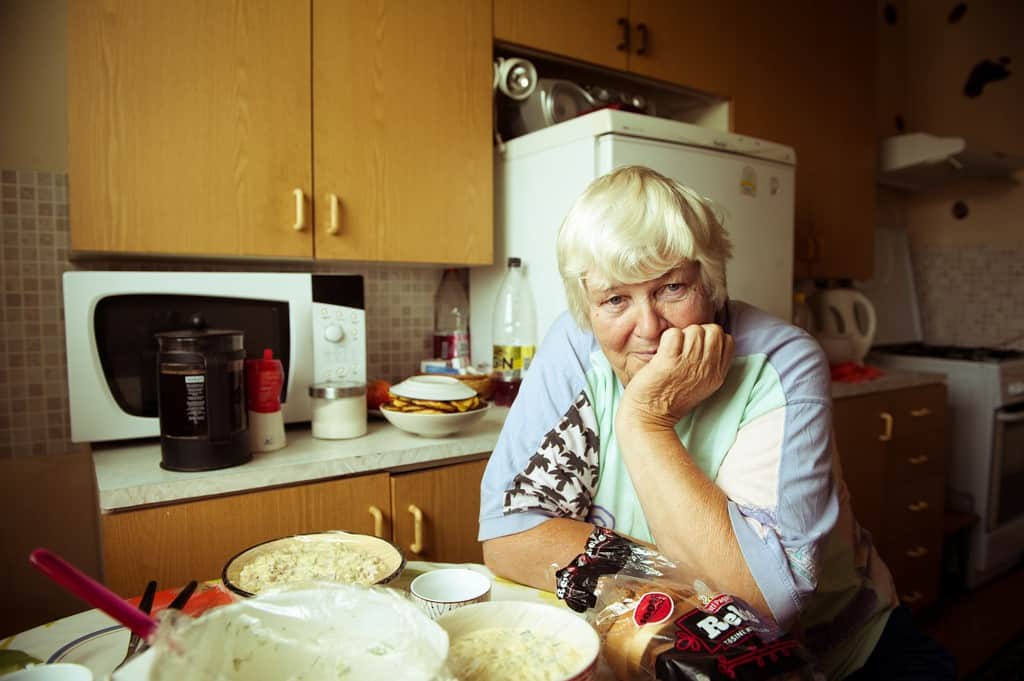Earlier this month, Inspiyr featured an article entitled “Your Mother was Right: Sit Down, Don’t Slouch, for Long Term Health.” As most of our readers must surely agree, the tagline is fitting; it’s one of the famous mottos of the modern mom, ranking up with favorites like “Eat Your Vegetables,” “Wash Your Hands Before You Eat,” and for those not-so-well-adjusted families, “Where Did I Go Wrong?” Valuable advice, to be sure, but the title may have stirred up some unpleasant memories – you probably greeted this sort of comment with a little resentment.

Maybe you felt that your parents didn’t trust you enough to let you solve your own problems and learn from your mistakes – or maybe you were just being difficult (what if I want bad posture, damn it!) Most children learn to cope, seeing their parents’ good intentions and reminding themselves that they’ll be treated as adults someday.
No doubt they’re startled when they grow up and realize that almost nothing has changed. Mom is complaining that you haven’t found another job (and yet you still can’t find the time to call her); Dad can’t believe how high the rent is on that horrible apartment.
The Parent-Child Bond
The bond between parents and children is, in the words of Medical News Today, “one of the longest-lasting social ties human beings establish… [it] is often highly positive and supportive but it also commonly includes a feeling of irritation, tension, and ambivalence.3” Most parents and children care deeply for one another and consider their relationship to be one of their most important roles in life. Just as often, however, this relationship can be stressful and highly demanding.
Parents spend much of their time, money, and energy to keep their children healthy and happy, only to find their efforts repaid with hostility and gratuitous eye-rolling. In direct contrast, children are “driven by curiosity, wanting to learn and explore the world and themselves in the world.1” Even as we grow and mature, our relationship with our parents remains largely the same – they hope to give us comfort and safety, while we hope to gain freedom and experience.
What Is Parental Divorce?
As time passes, our parents watch us take on a multitude of new responsibilities, which often include raising a family of our own; this only increases our mutual frustration. Medical News Today reports that the majority of parents and children experience “some tension and aggravation with one another.3” However, “…parents are generally bothered more by the tensions – and the older the child, the greater the bother.3” Adult children offer a surplus of new material to worry their parents with, including careers, finance, and love lives; they may also have entirely different interests and values, making communication difficult.
Maintaining a positive relationship with your parents into adulthood is stressful, and it’s often tempting to ignore them completely and move on with your life. Not surprisingly, many adult children do just that – isolating themselves from their families in a sort of “parental divorce.” This may be an attempt to assert their maturity and independence; it could also arise from the belief that their parental relationship is no longer supportive, causing needless stress and anxiety.
In the psychology blog “Shrink Rap,” Dr. Dinah Miller writes that, “in these cases, the adult children have severed ties even though the relationship was close, and they themselves might say they had good childhoods… it’s different in each case, and often there are issues with parental divorce, the relationship with the child’s spouse, a sense that the parent is too critical, too judgmental, or perhaps too intrusive and controlling.2”
But while this may offer some short-term relief, it carries serious consequences. Estranged children lose a valuable source of financial and emotional support, often feel guilty or anxious, and risk alienating themselves from other family members, including siblings and grandparents. Parents, meanwhile, tend to experience low self-esteem and severe depression because of this estrangement – and may even contemplate suicide.
The Takeaway
Though we all have had parents, we’re not guaranteed a genuine parental relationship. This takes a great deal of effort, patience, and understanding from both sides, which can be extremely trying if you and your parents hold different values and interests. As we grow up and assume many of the same responsibilities as our parents, this becomes even more difficult, as their help and advice seem unnecessary and sometimes even insulting. As difficult as it may be, always try to see through to their good intentions. Have open, honest conversations with your parents, expressing your concerns and offering suggestions on improving your relationship.
Rather than avoid them, demonstrate your maturity by engaging them as equals when you’re experiencing problems. Try to include them in your interests and your daily life, too; it’ll certainly offer less awkward conversation material. Believe it or not, your parents need you as much as you need them – just don’t try using that line to win any arguments.
Sources:
- Buck, Nancy S. “Peaceful Parenting.” Psychology Today. 7 January 2011. psychologytoday.com
- Miller, Dinah. “When Adults Shun Their Parents.” Clinical Psychiatry News. 19 January 2012. clinicalpsychiatrynews.com.
- Swanbrow, Diane. “Study of Relationships Between Adult Children and Parents.” Medical News Today. 6 May 2009. medicalnewstoday.com.
